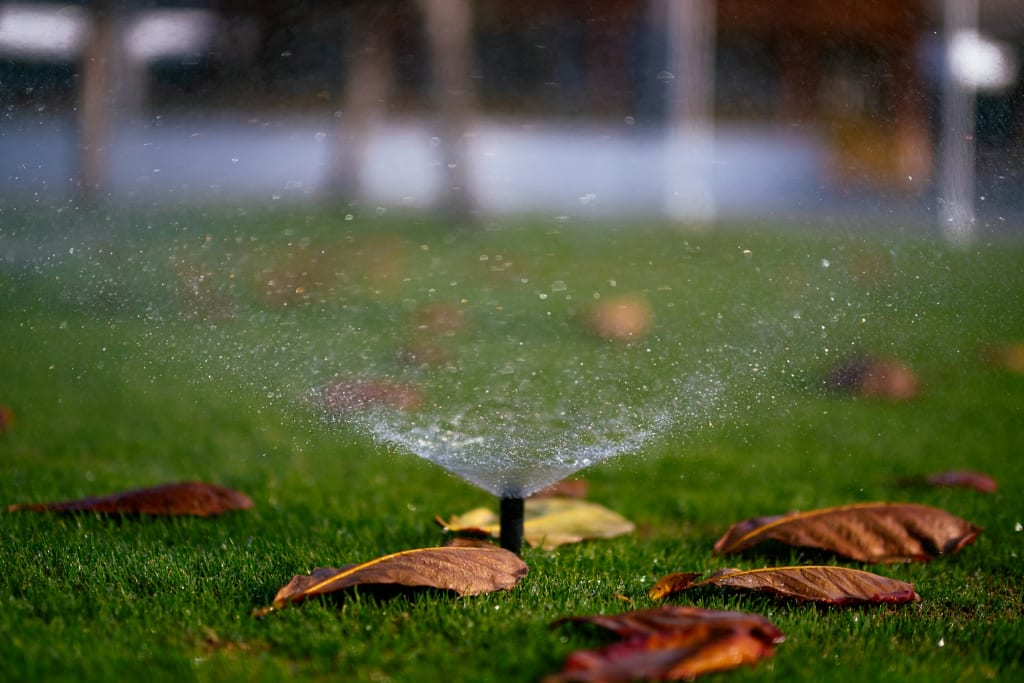Understanding the Challenges of Sprinkler System Repairs During a Drought
Challenges of Sprinkler System Repairs

Drought conditions significantly impact the management and maintenance of sprinkler systems. As water becomes scarce, ensuring the efficiency of your irrigation setup is paramount. Here’s how you can manage sprinkler system repairs during a drought to maintain your landscape while conserving water.
Assessing the Condition of Your Sprinkler System
Before diving into repairs, a thorough assessment of your sprinkler system is crucial. Begin by inspecting all components, including sprinkler heads, valves, and controllers. Look for signs of wear and tear, leaks, or any parts that aren’t functioning correctly. Identifying these issues early can prevent more significant problems down the line and ensure your system operates efficiently.
Conduct a zone test to check the water distribution. Turn on each zone and observe the spray patterns. Uneven coverage can indicate clogged or misaligned sprinkler heads, which can waste water and create dry spots in your lawn. By addressing these issues promptly, you can optimize your system’s performance and reduce water usage during a drought.
Prioritizing Critical Repairs
Not all sprinkler system issues require immediate attention. During a drought, prioritize repairs that directly impact water conservation and system efficiency. Leaks are a top priority as they result in significant water loss. Fix any broken pipes, seals, or connectors as soon as possible. Additionally, address any malfunctioning valves that might cause over-watering or under-watering in certain zones.
Adjusting the sprinkler heads is another critical task. Ensure that they are correctly positioned and functioning to avoid water wastage. Sprinkler heads that are too high or too low can cause inefficient watering, leading to both dry patches and water runoff. Regularly cleaning the nozzles can also help maintain optimal water flow and coverage.
Upgrading to Water-Efficient Technologies
Incorporating water-efficient technologies into your irrigation system can significantly enhance water conservation efforts. Consider installing smart controllers that adjust watering schedules based on weather conditions and soil moisture levels. These controllers can reduce water usage by ensuring your landscape only receives the necessary amount of water.
Drip irrigation systems are another effective upgrade. Unlike traditional sprinklers that spray water over a wide area, drip systems deliver water directly to the plant roots. This method minimizes evaporation and runoff, making it ideal for drought conditions. Additionally, replacing old sprinkler heads with low-flow or high-efficiency models can further reduce water consumption while maintaining healthy plant growth.
Implementing Drought-Tolerant Landscaping
Adjusting your landscaping practices can also help manage sprinkler system repairs during a drought. Transitioning to drought-tolerant plants and ground covers reduces the need for frequent watering. Native plants, in particular, are adapted to local climate conditions and require less water to thrive.
Mulching is another effective technique. Applying a layer of mulch around plants helps retain soil moisture, suppresses weed growth, and reduces the need for irrigation. Organic mulches like wood chips or straw are excellent choices as they also improve soil health over time.
Regular Maintenance and Monitoring
Ongoing maintenance is essential for keeping your sprinkler system in top condition, especially during a drought. Regularly check for leaks, damaged parts, and inefficiencies in water distribution. Seasonal inspections and tune-ups can prevent minor issues from escalating into costly repairs.
Monitoring water usage is equally important. Use water meters or sensors to track the amount of water your system uses. This data can help you adjust your watering schedules and identify areas where you can cut back on water usage. Staying vigilant and proactive in maintaining your system will ensure it remains efficient and effective throughout the drought period.
Community and Professional Resources
During a drought, leveraging community resources and professional expertise can be incredibly beneficial. Many local water districts and municipalities offer resources and rebates for water-efficient irrigation technologies. Taking advantage of these programs can help offset the cost of upgrades and repairs.
Hiring a professional irrigation specialist can also be a wise investment. Experts can perform comprehensive system audits, identify hidden issues, and recommend the best solutions for water conservation. While DIY repairs can be cost-effective, professional services ensure that your system is optimized for efficiency and longevity.
Conclusion
Managing sprinkler system repairs during a drought requires a strategic approach focused on efficiency and water conservation. By assessing and prioritizing repairs, upgrading to water-efficient technologies, implementing drought-tolerant landscaping, and maintaining regular upkeep, you can ensure your irrigation system remains effective while conserving precious water resources. Leveraging community resources and professional expertise further enhances your ability to navigate the challenges of maintaining a healthy landscape during a drought.
About the Creator
Enjoyed the story? Support the Creator.
Subscribe for free to receive all their stories in your feed. You could also pledge your support or give them a one-off tip, letting them know you appreciate their work.





Comments
There are no comments for this story
Be the first to respond and start the conversation.